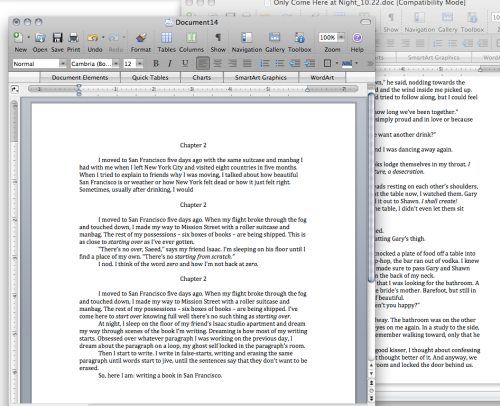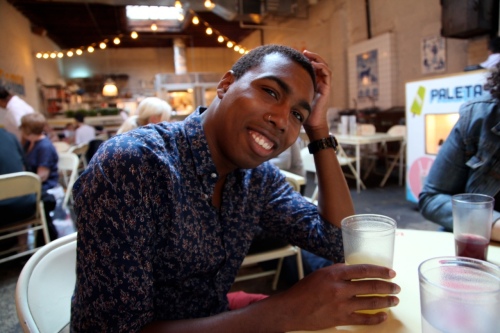
Writing is not therapeutic for me. It is arduous usually, thrilling often and heartbreaking occasionally. Not to be dramatic, but the poems I write are my attempts to save my life line by line, image by image. They are tethers. And the making of such a tether is damn hard work. (I know you know this.)
What I’m thinking about today though is dread. Over coffee a few weeks ago, poet Geoff Trenchard shared with me that the essential quality of film noir is “an awareness from the very beginning that the hero is doomed.” From the moment the pretty woman saunters into the detective’s office, we feel — as the detective surely does — a sense of dread. This woman is going to cost me dearly, he might think, but I have to pay. I just have to. The poems I admire the most have this quality to them. The poem cost the writer something and yet was, in a sense, unavoidable. As Patricia Smith mentioned has mentioned when discussing her poem “Skinhead” when an artist encounters a poem waiting to be written, he or she knows the poem will own them until it has been written.
Dread has the definition we know and the definition we may have forgotten.
The definition we know: To anticipate with great apprehension or fear.
The definition we have forgotten: To regard with great awe or reverence.
Of course, everything occurs on a continuum. Perhaps you recognize the kind of dread I felt a few nights ago when I realized that, despite all my efforts and attempts, the free-verse poem I was writing wanted to be a sestina. I got up from my computer and paced the floors of my apartment, cursing under my breath because I am melodramatic but also because I had a kind of dread. There’s no way around this. The poem just told me what it wants.
Perhaps then too you understand the dread of wanting to write poems that speak to the recent death of my mother. My notebook is full with titles, images and first lines, full of apprehension about doing right by the woman who made me. Once, I made it half way into a first draft of a poem about the week after the funeral and ended up crying for the rest of the night. The poem opened a door that would not close. I dread that door now. Every poem I write feels like I’m creeping along the hallway, hoping that whatever is in that particular room doesn’t notice me trying to sneak by. I keep writing these poems because I know no other way to stay here.
And I love it. I love this art because I know the truth when I have earned it.











